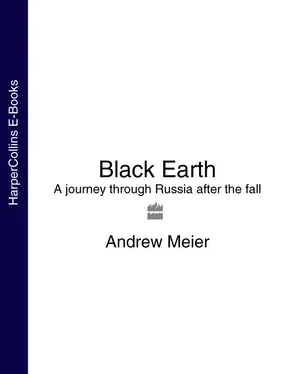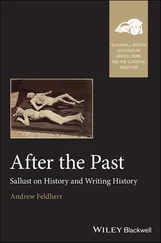So many wonderfully fine women can hardly be seen in any country in one assemblage .
–Cassius Marcellus Clay, the Kentucky abolitionist Lincoln sent as America’s emissary to Alexander II
ANOTHER STREAM OF PROSPECTORS had started in the last days of the old USSR. American men, weighted with middle age and regret, began to come to Moscow to troll. Back then they were searching for a woman they had heard of, the charming and servile Russian antifeminist, the alluring woman who could be wife, lover, cook, cleaner, and mother all in one. Moscow, the American lonely hearts believed, would be their mecca. For thousands, it was.
In the hotel bars and nightclubs you ran into all sorts: human rights lawyers and postdoctoral scholars, cardiologists, and even astronauts. Most of the men spoke no Russian, knew nothing of Tolstoy or Pushkin. To them, the girls were “Natashas,” one and all, and Moscow was heaven. That was in the pioneer days. As time moved on, the marriage market slumped. “Russian bride” agencies still claimed a strong niche, but many of the men who came to Moscow now wanted only one thing. Sex ruled the night, and the dollar was the coin of the realm.
During Bill Clinton’s last presidential visit to Moscow, Mia and I went for a beer at a new hotel on Tverskaya, Moscow’s main drag. We found half a dozen Secret Service agents lining the bar. (After Tatum’s murder the White House was relieved that a new American hotel had opened in Moscow.) Nearby sat several other Americans, from their banter, junior-level White House adjutants. The Secret Service on that night was more than happy to share a tip. “Go to Night Flight,” one agent in a pinstriped suit said, “and you’ll never regret it.”
Night Flight was Swedish run and scarcely resembled a bordello, but it was famed for offering Moscow’s most beautiful, and most expensive, prostitutes. (“DO IT TONIGHT,” said its ads at the airport, tempting new arrivals.) The cover was steep, the Secret Service agent said, twenty dollars after 9:00 P.M. “But,” he added, “it’s the best twenty bucks you’ll ever spend.”
If Night Flight was the high end, the Hungry Duck anchored the low end. Run by a Canadian innkeeper who opened his first bar in Moscow in 1993 and housed in the old House of Culture for Soviet Workers in the Arts, a few minutes’ walk off Red Square, the Duck, as the bar was known among ex-pats and natives alike, grew world famous. The Washington Post even dubbed it “the wildest bar in the world.” While it lasted, it was certainly one of the most vulgar, with drunken sex in its dark corners and vomit on its floors.
The first time I braved the Duck, I ended up bartending. I had come to interview the club’s impresario, Stanley Williams, a black deejay from Brooklyn who had recently emerged from a Moscow prison cell. Caught up in a sweep targeted against African students in a Moscow disco, Stanley had been arrested for possessing “less than an ashtray” of marijuana. In the end the charges were dropped, but by then he had spent nearly two years in Moscow’s worst jails. I was writing a story on the miserable state of Russian prisons – the prison population had risen to more than a million, and the prisons had become one of the world’s leading TB incubators – and I wanted to talk to Stanley.
I arrived too late. Stanley was already behind his turntables. So I was put to work, pouring beer behind the bar. All eyes were fixed on the male strippers who paraded on top of the long bar that ringed the center of the club. “We usually get upwards to eight hundred in here on Friday nights,” Stanley screamed as Puff Daddy blasted out from huge speakers. (Nine hundred and twenty girls, he said, were the house record.) Stanley had stacked the speakers on top of one another, building a barricade to protect him from the sweating masses. “It can get a little–” I could not make out the end of his sentence. But I saw what he meant.
The Duck’s managers, relying on the laws of physics and desire, had mastered the art of maximizing the sexual tension a single room can permit. The girls, many of whom had to survive long train journeys to get here, got in free. They drank – only hard liquor – for free. Men were allowed entrance only after 9:00 P.M. They gathered in a long queue outside the bar, like bulls locked in a chute awaiting a rodeo’s opening bell. The effect naturally was dramatic. The sweating mass of Russian teenaged girls danced harder and harder as the music grew faster and faster, while the older, mostly Western men lusted all the more publicly. As the fever swelled, one, then two, then many more girls took to the bar to dance. Before long they had ripped off their blouses and bras. It was not rare, Stanley would say, for the action to go farther, much farther than that.
In the years that followed the crisis, Moscow’s nightlife grew serious. As Yeltsin departed and Putin entered, a new stodginess threatened to reign. Many of the landmark stops along the ex-pat map of Moscow closed. The Duck was one of the last, but it, too, shut down. The woman who ran the former House of Culture that housed the club was eighty-two-year-old Olga Lepeshinskaya, a former Bolshoi prima ballerina. Still known as Stalin’s favorite, Lepeshinskaya was not pleased her beloved building was hosting a bacchanalia. She launched a campaign to evict the foreigners. The Canadian owners had survived countless death threats and an attempted kidnapping, but eventually the police raids, even though the owners had paid out some two hundred thousand dollars in bribes, killed the business.
One of the final blows came when a clutch of Duma deputies, of the Communist and nationalist bent, checked in on ladies’ night. They arrived just as Dylan, the Duck’s six-foot male stripper from Nigeria, wearing little but gold spangles, was “dancing” on the bar, with several young Russian females, to the blasting strains of the Soviet national anthem. Weeks later one of the Duma deputies in a speech on the parliament’s floor, grew red in the face. “If this were Washington,” he screamed, “they would hang that Negro!”
IN ALL THE YEARS I lived in Moscow, I never had a car. Each day I would step out onto the curb and raise an arm–“voting” the Russians call it – and almost always in an instant at least one car, sometimes an entire lane, would screech to a stop. For a journalist, few modes of transport could be more rewarding. For Muscovites, and Russians in cities across the country, turning your car into a gypsy cab is what even the most educated and skilled did – and do – to get by. Over the years I enjoyed my share of ambulances, hearses, KGB Volgas, and Kremlin Audis. In the privacy of their cars, I sat beside the dispossessed and displaced: a nuclear engineer who had helped to design the SS-20s once pointed at the United States; a Yakut wrestler who pulled off the road, opened his palm, and tried to hawk a two-carat Siberian diamond; an ex-KGB colonel who had spent his career reading dissidents’ mail and now complained that the state had abandoned him; an Armenian gas smuggler who drove an armored BMW he could no longer afford to fill with gas. Each day brought a new round of coincidental interlocutors. Rarely did they stay silent for long. Like the coachmen in the stories of Gogol or Tolstoy, they steered the talk effortlessly from the weather – the dreadful snow or the dreadful heat – to politics – the ineluctable triumph of the “den of thieves” in the Kremlin – before settling into a long disquisition on the country’s dreadful past and dreadful predicament at present. Each, above all, was certain to recite, as if by rote, his – and occasionally her – own canto of loss.
Читать дальше












